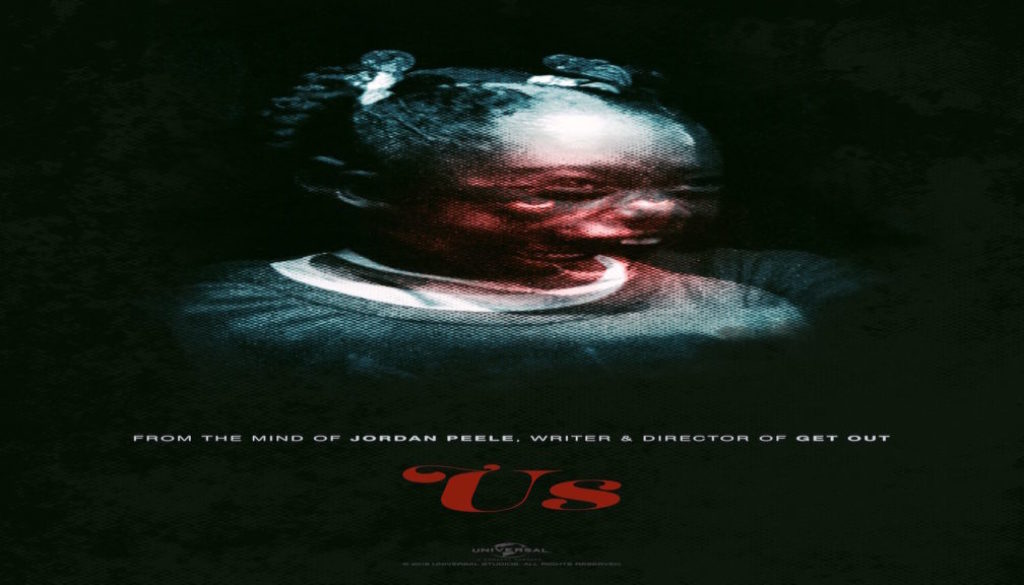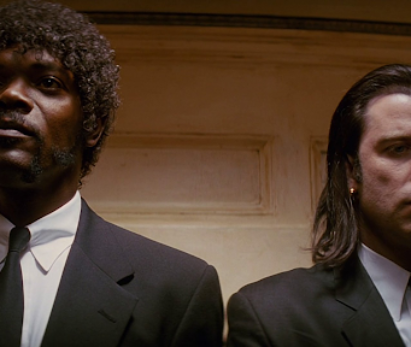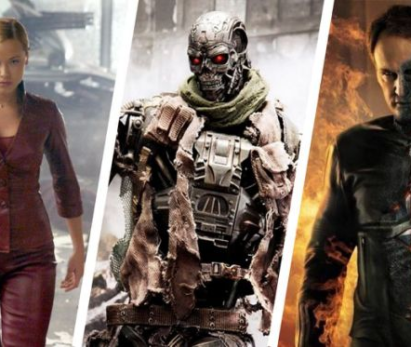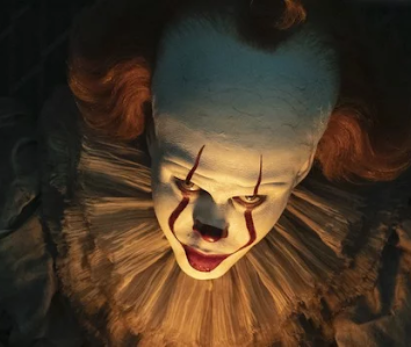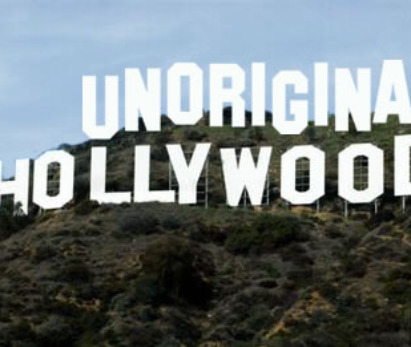The truth about US
Jordan Peele has done it again. With his follow-up to his hit movie Get Out, Peele delivers a new horror movie filled with symbolism and multiple parallels. Us killed the box office this past weekend, setting a historic mark of $70 million, which was the highest opening for an original horror film, and also the highest for an original horror film with an African American female lead.
Filled with a cast featuring lead actress Lupita Nyong’o, Winston Duke, Anna Diop, Evan Alex, Shahadi Wright Joseph, Madison Curry, and others, the movie details the Wilson family returning to a beach in Santa Cruz for a vacation, where Adelaide Wilson, played by Lupita, once visited as a child with her parents.
During her visit as a child, she wandered off from her father and explores a funhouse, where she found a doppelganger of herself. We later learn that the doppelganger took Adelaide down a rabbit-hole where all the other doppelgangers or tethered, people live. She chokes Adelaide to sleep then drags her to a bed and ultimately switches places with her and returns to Adelaide’s family, thus setting up the plot for the remainder of the movie.
Adelaide’s parents wonder why their daughter is not the same, and it is truly because she really is not the same. Their daughter is actually one of the tethers, who truly cannot communicate like the rest of her peers. Eventually she grows up to have a husband and children, and without giving the entire movie away, the plot rises until the eventual climax of the battle between Adelaide’s return and the tethered version of her.
From the opening frame, Peele shows us that this is not your regular horror film. He begins the very first visual with three sentences saying “there are thousands of miles of tunnels beneath the United States…abandoned subway systems, unused service routes, and deserted mine shafts..many have no known purpose at all.” A whole essay could be written debunking that statement alone, but regardless, one can tell that several hidden gems are coming, and Peele certainly does not disappoint.
While Get Out focused largely on racism, Us flips the script, and tackles the subject of classicism. One of the subtle themes shown to us is the concept of redlining. The ending of the movie illustrates all the tethers rising from the underground, holding each other’s hands, while replicating the 1986 “Hands Across America” commercial. Redlining is illegal now, but at the time it was a tool used to discriminate against people based on race, color, etc. who attempted to borrow money.
Not so subtle was the tethered people living underground. Red, the doppelganger played by Lupita, in her conversation with Adelaide, discussed that for so long she lived in her shadow, eating rabbits every day, while Adelaide lived a luxurious life. Peele suggests here that maybe the enemy isn’t the oppressors but ourselves. This duality is blatantly shown by the mere idea of the doppelgangers. We are so focused on “me this and me that”, that we forget the less fortunate and how much struggling they endure, which in turn will hurt us.
The most obvious proposition given by Peele is in the title. Many have suggested that the title is synonymous with U.S. (United States), and that the movie is a foreshadowing of what the future holds for this country.
Although it may seem extreme, the tethered killing the people above, both literally and figuratively, might represent homeless people, people in poverty, and other minorities in America taking their place in the world after being second-class citizens.
Despite the numerous references that are used in this movie, an interesting point that may have gone over many viewers head was when Adelaide re-entered the funhouse, and took the elevator downstairs to where the tethered people lived. At no point in the movie were the tethered people tied up or restricted.
The question then becomes, why did they not use the elevator to free themselves of their situation? Applying this theory to society, maybe it is possible that Peele is saying that people stuck in a lower class sector do not realize the resources that can help change their situation.
Us not only deserves a second watch, but a serious applause for the great acting. Each member of the Wilson family played their roles so well that you really believed that it was two separate people, although acted out by the same person.
Peele continues to find a niche in creating horror films that are not nightmare scary, but instead are scary by revealing truths about the world we live in. Unfortunately, this might be what is needed to help change the minds and perspectives of some people today.
